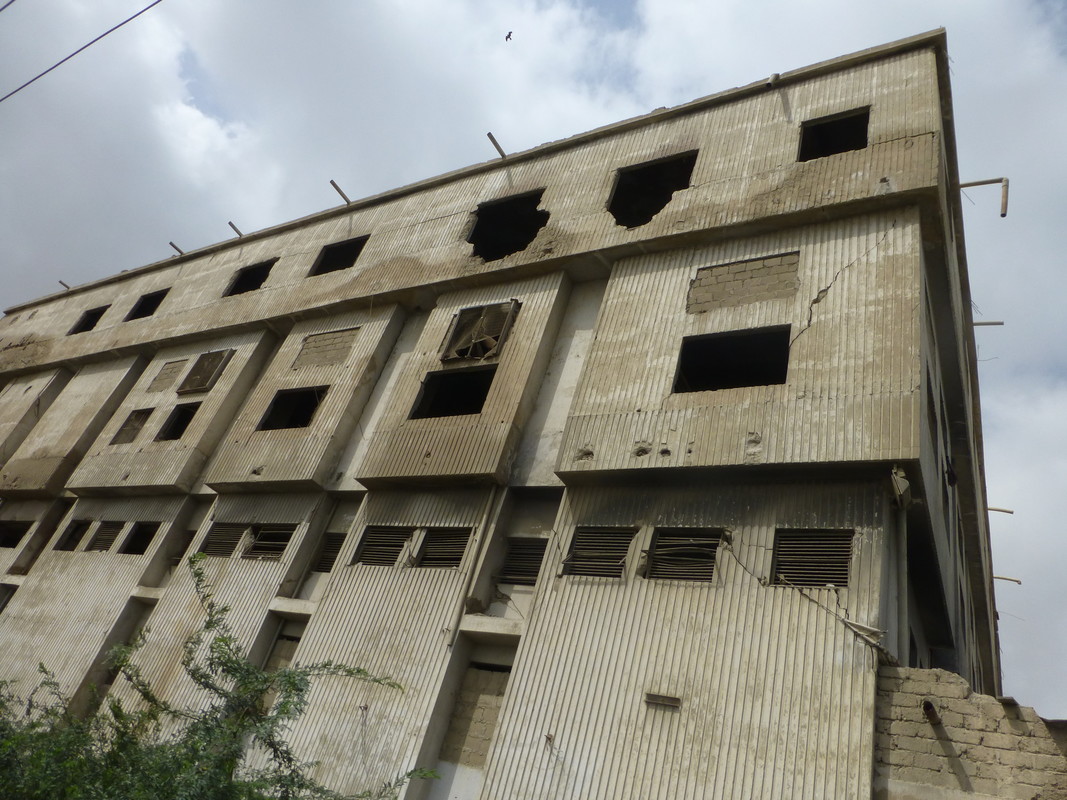
Solidarity statement on the anniversary of the Ali Enterprises fire
Eleven years ago, on this day, over 250 workers were killed in a fire at the Ali Enterprises garment factory in Karachi, Pakistan. Clean Clothes Campaign expresses its solidarity with the families whose loved ones were killed and the workers who were seriously injured as a result of that horrific incident on 11 September 2012.
Today, our thoughts are with all those who were harmed by the deadly fire: the survivors, some of whom were forced to jump from upper floors to save their lives and the families who lost their loved ones, in many cases the bread winners. The Clean Clothes Campaign network expresses its solidarity with all those who were affected by the fire and with all garment and textile workers in Pakistan.
Fighting for factory safety
The fire in the Ali Enterprises factory was just another example of garment and textile workers in Pakistan being forced to work in incredibly unsafe conditions. It also proved the failure of social audit systems used by many brands. The social auditing companies which inspects factories in the name of buyers or factories themselves to check the working conditions in garment and textile factories are utterly inadequate to detect and address actual worker rights violations. The Ali Enterprises factory had been certified as compliant with international social certification standards mere weeks before the fire.
Zehra Khan, General Secretary of the Home Based Women Workers Federation in Pakistan said: “The false reassurances of the auditors that checked the Ali Enterprises factory shows that all audit reports should be public. Private social auditing is just used as camouflage to fool consumers into thinking all is well in the factories. Audits can only be done effectively if they are run by a tripartite and legally binding audit system with union participation to ensure they are result-oriented and worker-centred.”
The fire at Ali Enterprises conclusively showed that voluntary, brand-led systems do not work, but it took the immense tragedy of the Rana Plaza collapse in Bangladesh in 2013, a decade of safety work in Bangladesh, and years of fighting by unions in Pakistan for a transparent and legally binding safety programme to finally arrive. The Pakistan Accord was announced by unions and brands in December 2022 and is currently being rolled out.
The fire at Ali Enterprises conclusively showed that voluntary, brand-led systems do not work, but it took the immense tragedy of the Rana Plaza collapse in Bangladesh in 2013 and a decade more for brands and unions to agree on the creation of the Pakistan Accord on Health and Safety in the Textile and Garment Industry (Pakistan Accord) in December 2022.
While 72 brands have now signed the Pakistan Accord, several major companies yet need to show their commitment. Among the brands that previously stepped up to protect their workers in Bangladesh but are now dragging their feet to sign the Pakistan Accord are UK brands Boohoo, The Very Group, and Missguided, as well as Target Australia, Esprit, and Fruit of the Loom. Beyond that, there are many brands which have not signed the Accord in either country, like IKEA, Levi’s, Kontoor Brands (Lee, Wrangler), Amazon, Target US, and Decathlon.
In a recent interview, workers from a Pakistani supplier factory to Levi’s stated that while the factory has emergency exits, not all of them are accessible as they are blocked by boxes of stock, and reported several electricity short circuits.
All brands sourcing from Pakistan that have not yet done so must sign the Pakistan Accord.
Justice for affected families and survivors
Years of struggle by those affected by the Ali Enterprises fire in 2016 led to an unprecedented programme guaranteeing life-long pensions for families who lost their bread winners as well as workers who can no longer sustain themselves. In a worrying turn of events, the families and labour rights organisations in Pakistan who fought hard for this agreement have now been shut out of crucial decisions about the future of this fund. Clean Clothes Campaign is seriously concerned about the lack of consent and transparency displayed by the International Labour Organisation in its management of the disbursement process. We urge that a national oversight committee is reinstated, to include the Ali Enterprises Fire Affectees Association, the Pakistan Institute for Labour Education and Research (PILER), and the National Trade Union Federation (NTUF), so that they can continue representing the affected workers and dependents on issues related to the disbursement of pensions, as they have done faithfully and effectively since the start of the programme.
Nasir Mansoor, General Secretary of the National Trade Union Federation in Pakistan, says: "The ILO made an agreement with an insurance company to run the programme without consent of the Affectees Association or PILER and NTUF and even refuses to share the agreement with the insurance company with us. What credibility does this programme have without oversight by the those who represent the people affected by the fire?"